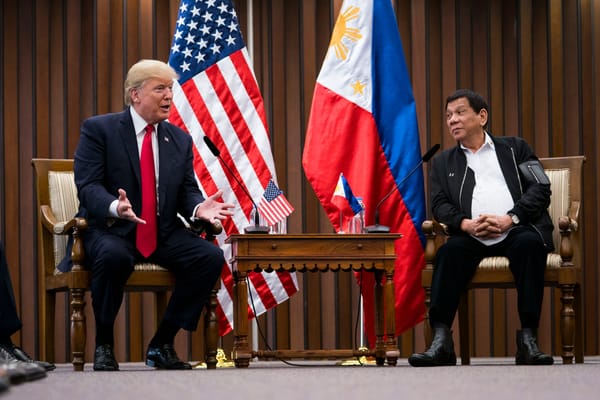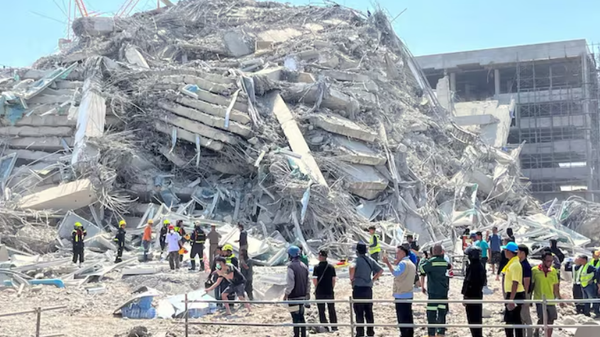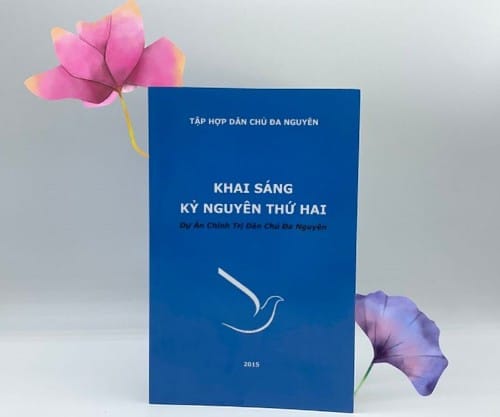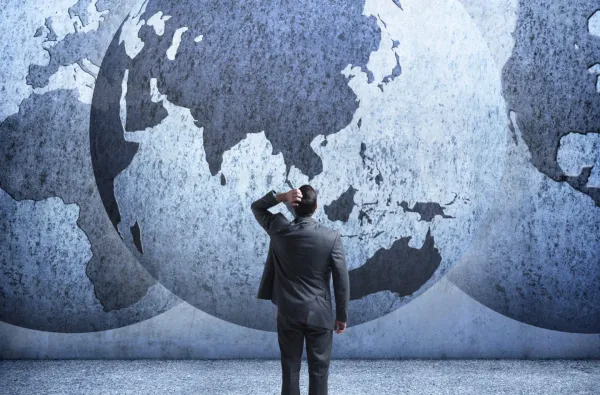Southeast Asia in the fourth wave of democracy: a cleavage that starts to appear

Democracy: a national effort, a choice between growth and demise
I dedicated this article to analyse the state of democratisation in Southeast Asia, in the context of a very distinct period in the World’s history which is about to come. Needless to say, we can see with our own eyes the light-speed advances of technologies and AI, which soon bring about transformation. In the next few years, some of the key technologies (such as AI and renewable energy) will come into full shape and will bring about real changes. We also see the American resignation from global leadership and the reconfiguration of globalisation, which will bring the world as we know today to an end, as we are heading to a New Era, or an era of a New World Order. With uncertainties, it is inconclusive to say which tone will be set. Attention turned to whether democracy will remain the major form of governance in the next era to come on the prospect of democratic backsliding in America, the most powerful and wealthiest nation, and elsewhere in the World (clearly a substantial decline in democracy indexes globally). But clearly, if the world is growing more fragmented, or at least it will be more fragmented before there are new ideas and bases for global integration, it also means that the prosperity, development, and future of a nation depends on its individual national efforts. Democratic spirit fails because of the political short-sighted realism, complacency from the democratic elites, and increasing perception of inequalities due to high-speed economic shifts and restructuring remaining unaddressed. But I’d doubt if anybody said there is a model more superior to democracy. And the 2024 Nobel Prize Winners in Economics demonstrated to us how prosperity is different among nations and that democratic institution improvement is key to prosperity. With that in mind, the pathway to gain prosperity and have a future in the New Era will not be decoupled from the improvement of democratic institutions and rights expansion, in other words, democratization, but it will require efforts of a nation-state on its own in the context of global fragmentation. I would not say that there isn’t any international solidarity or common sense of a global movement, but democracy improvement will speak directly to the nation-state’s future in the New Era: it is a choice between growth and demise, moving forward to the future or being dragged back to the past.
The geopolitics of democratisation
I’m not a student majoring in political science or geopolitics, but a discussion on Southeast Asia does not come across without elements of geopolitics. With facts we have in mind, Southeast Asia is home to a population of 698 million residents stretching over 4.5 million kilometres square, equaling 4 trillion dollars or 4.6% of Global GDP, known as one of the fastest growing regions. Southeast Asia is divided between the inland Southeast Asia and Island nations; mixed between Austroasiatic and Austronesian ethnicities.
Within Inland Southeast Asia, we have Myanmar, which is lodged on the edge of the Indian Ocean, and Vietnam, which provides a window to the Pacific Ocean through its long coastline and South China Sea (or Eastern Sea in Vietnamese language). Inland Southeast Asia has the Northern rugged mountain ranges running South divided between Vietnam and Laos (Annamite Range), with ethnic minorities on both sides having ethnic, cultural, and linguistic commonalities, and Mountains and confluences of rivers that cut across Laos and Myanmar. Moving further south comes the view of lowlands with Thailand's Central Region and coastal provinces, Cambodia, and South Vietnam, and the inland part of Malaysia. The morphography of the Region is also characterised by the Mekong River flowing through six countries, and give richness to the territories; rich biodiversity and fish stock, and comes with it boat life and livelihoods. When the hydropower dams were added upstream and down through to the subsidiaries, the countries’ natural ecologies and social fabrics started to be hit. The transports of sediment halted, and flooding patterns altered; the river fish stock are in decline, livelihoods disappearing, and lowland deltas shrinking. Despite historical acrimonies and doubts we might have in the past, all these countries are brought to a common interest and challenges. The Mekong River is a case in point when it comes to how common issues bring us together. But we know well that the 6 of the Mekong Basin’s nations fail to put pressure on China because of the political divisions among us, and China tapped well into that. We know any mechanism to resolve the issues should be based on a rule of law, which is democratic in nature, which is not something autocratic countries could take advantage of or turn into strength. Imagine if 6 Mekong Basin countries were democratic standing from the South, and with Eastern Asian nations of Japan, South Korea, and Taiwan standing on the Eastern flank of China; China would see interests of making concessions on the water management of Mekong River for avoiding isolation it would face. It has always been an example I bring up to talk about how democratisation is a geopolitical task we have to secure our common future and resolve the regional issues.
Protecting our freedom of navigation in the South China Sea is another example to say that democratisation and fighting for rights and freedoms have been the geopolitical interests of our Southeast Asian countries and our citizens. The archipelagoes of Southeast Asia are coast-to-coast, separated from our inlanders by the South China Sea. Those were historically more sea-faring and adventurous peoples who launched the plunders into our countries from time to time and migrated and settled down in different parts of our land in many waves. Their modern states are relatively stable democracies compared to the Inlanders’ countries, despite not being without faults and weaknesses, and their land is always the frontline to resist against typhoons, floods, and extreme weather events before they hit our Inland Southeast Asia (climate change makes everything worse). Without commitments to the Paris Agreement, our cities and territories will be shrinking below sea level. Our peoples are shoulder-to-shoulder in the world’s issues, and we are all in this together when facing any external threats. If the improvement of democratic institutions and right expansion are the national efforts of individual nation-state, we also have an interest to stand in solidarity with our neighbours’ democracy movements because we know many regional issues will not be resolved with one’s absence from the solution.
Democratic bloody backsliding in Myanmar and lessons-learnt
To our memories, Myanmar experienced a coup in 2021, with the junta overthrowing the democratic election results and declaring a state of emergency. The students turned out en masse, fighting to revive hope in despair, and faced massacres by the soldiers deployed on the streets to quell the protests. The peaceful movement and civil disobedience were dissolved to give way to armed resistance and civil wars between the Junta, PDF, and the ethnic minorities. The junta promised to end the state of emergency and hold an election in December, to the doubts and skepticism of the international observers. The election will possibly be a sham, but the junta might also see the deadline is ticking as things are going out of their control with their military defeats, the economy and society left in ruins, and the current earthquake certainly making the situation the worst since the onset of the coup.
We were once taken by surprise to see the later developments after the coup, it is hard to comprehend why such brutality and suppression could be put down on innocent civilians and peaceful protestors. Much as we hoped, the military will back down from the use of violence and approach the protests in a soft manner. They had no qualms about sparing lives.
In trying to learn what had gone wrong, we recounted how Aung San Suu Kyi fell from grace after her silence or fallacious arguments over the genocide against the Rohingya. My colleagues said to me that her version of democracy lacked critical depth and content, it has been a democracy without pluralism, and this deficiency did not allow them to include the Rohingya as part of Myanmar’s nation. It wasn’t a democracy at all, even, but a form of democratic governance being injected into the junta rule, in which the junta still reserved a quarter of all seats in the Parliaments without winning an election. Democratic transition in Myanmar should have started with de-militarisation from the civil administrative institutions; perhaps the country’s democratic system had been built up to fail. The junta plotted the coup partly having been appalled by the election results in 2020, which saw a decisive victory for the pro-democracy National League for Democracy. The junta action was spoken as if it was about time to take back power and the rule, and as if it wasn’t a deal they were signed up to when they decided to hand over power in 2013.
Myanmar’s case gives us valuable lessons about how democracy should be fought. Democracy is inclusive, and it begins with a process to bring all the people and groups in the process; so sensible dialogue among the intellectuals, citizens, or even with the authoritarian rulers is sometimes more critical than voices and protest banners on the streets; but on the other hand, absurd compromises should never be made, every democratic value must be fought hard the way it should be and is non-negotiable at the onset of the negotiation. A realistic compromise is a shortcut to bypass the hassles expected at endless negotiations with the authoritarians, yet could leave the democrats at risks of making further undemocratic compromises which cripple them their capabilities of instituting democratic agendas at the transition process.
Insights from my personal struggle for democracy and pluralism
With that in mind, from my humble point of view, it is also not sensible to push all steel and rock on the negotiation table at the last minute. The very ideas of how democratic transition should go ought to have been clearly communicated long ago, even a few decades ago.
When fighting for democracy in Vietnam, we, the Rally for Democracy and Pluralism considered our national dialogue starting out in 1984, back to our founding, and we outlined our values to be Democracy & Pluralism, Non-Violence, and National Reconciliation. Our stance was put into test with an incohesive movement overseas bouncing back from the Civil War legacies, with some militant groups still hoping to re-arm to fight back the communists, individuals and diasporas bearing all bitterness through the personal experiences and trauma; non-violence and pluralism (which means more inclusion of voices and thoughts) were always falling behind from the mainstream groupthink which was filled with angst, and impulses for revenges. National Reconciliation was hardly accepted and dismissed as a “pro-communist” idea. But as the national dialogue was carried on, these ideas started to be embraced because everyone realised we needed to break from the legacies of divides for a more inclusive and desirable future.
We also set on major approaches and policies in our Success in the 21st Century (Thành Công Thế Kỷ 21), our early Political Project; and the later Illuminations on the Second Era (Khai Sáng Kỷ Nguyên Thứ Hai), published in 2015; such as de-centralisation, and giving power from the Central State to Regional governments, a market economy based on private sector, individualistic creativity, and the confidence of the domestic market, building a generation of responsible and competent businessmen, growth with strong guarantees and safeguards of the environment, and social fabrics’ solidarity that speaks to the true essences of national happiness; and others so to speak around the concept of a Vietnamese dream shared by all Vietnamese people. Those ideas have been fought through the thick ice of doubts and resistance from the publicities, the intellectuals, the scholars, and the communists. We realise it takes time to win people’s hearts and minds. But once we win, we shall win decisively and with no compromises on what is central to our political values. We have made it very clear that they only fight for what’s written in our textbooks, and we will not accept any regime change without such ideas and concepts.
We understand that this might make our struggle a few years longer, but the results and the sustainable pathway for democratic transition are guaranteed. Even the simplest idea in our democratic project needs years and decades to be elaborated and communicated in society before the final acceptance, we won't hope it is accepted overnight with behind-the-closed-door negotiations.
Thailand: Gradualism or Revolutionary Democratic Transitions
In 2023’s General Election, Thailand’s progressive Move Forward Party won a landslide, showing people’s hope and aspirations for democracy, which was cumulative as a result of the buildups of student protests and civil society’s movements in the past years. But the Party was dissolved by the Court for proposing an amendment of defaming the country’s royal family. In a hybrid system (quasi-democratic and quasi-authoritarian), the Party was blocked from power because members from the autocratic Senate appointed by the military refused to endorse the Party’s candidate for Prime Minister. The election results were not guaranteed and were quick to be circumvented by the autocrats to people’s plummeting hope and despair. However, the result was also mixed to be conclusive in that there was also a reform to partially blocking the military from appointing the Senate through the introductions of a complex process of professionals from different sectors, and their veto right being stripped. It could be seen as a move to democratise the country’s institutions to a certain extent. It reveals a fact of the day that there has been an awareness of Thailand’s ruling establishment that the political system of the country will undergo on-going democratic transition which serves as a means to ensure peace, stability, and economic growth in the country, and a return to junta rule will bring about chaos and conflicts as seen in Myanmar. They might have understood they are only safe and secure in democratic institutions and a rule of law, having learned from the dilemma facing the junta in Myanmar. A coup to eradicate democracy might be tempting to give a try, but once the situation is driven in madness, those in power will either try to hold out to huge resistance from the populace, and once they lose, they will fall victim to all the havoc they create. But the question is whether democratisation should be an urgent issue as demanded by the progressives or just a series of gradual and slow-motion reforms as ascertained by the conservatives; with the pressure of time and expectation, gradualism will grow so irrelevant, and a revolutionary form of democratisation might be of inevitability.
The Philippines, Indonesia, and Malaysia: continual process of democratisation
Three archipelagic major countries in Southeast Asia have traditions of democratic institutions, and democracy and rule of law are more native to their system rather than something that is overridden onto an existing apparatus as seen in Thailand. However, those do not exist without shortcomings, the wave of globalisation that began in the 90s brought an enormity of wealth to the nation-states across the world, Southeast Asian island countries are the natural beneficiaries of booming trade and commerce, being located at the international sea transport routes, part of the Indo-Pacific Region, and having adequate infrastructure and population to accommodate the foreign investments. Globalisation has been re-configured of late with supply chains being shortened, regionalisation, and friendshoring, but it seems that this only spurs further integration of free trade agreements and investments into the countries. Their national economies are only growing more competitive when businesses set out to leave China (with net inflow of FDI veering minus territory). To give you a figure, Indonesia's FDI is up 21% on a yearly basis.
However, the inequalities have not been boding well for decades. To give you an idea why, the benefits from the global trade and commerce, and foreign investment are received by the 1-10% in society, who are part of the political connections or oligarchy, while trickling down little to the majority of the population. Public policies do not tackle the people’s precarity or improve access to social securities and opportunities. A large portion of the population ends up hopeless in advancing through the social hierarchy. The countries should have had opportunities to improve the country’s institutions, social securities, and build up a formula and policies for inclusive growth led by right political thinking and philosophies from the country’s leaders. Unfortunately, the globalising movement has gone wild on consumption of manpower and resources for production, monetisation of every sector in society, and favour has been gained on the middle-ranked politicians and civil servants as the standard-bearers on the financial market performance, and urgent response to daily market issues, yet lacking long-term vision and stories for the country’s future and sustainability; and on the top of the system ruled the corrupt politicians and families, who are no friends to democracy. The building of democratic institutions and the strengthening of democratic values and civil society were quick to become the priorities.
The Philippines’ president Duterte, who has recently been arrested by ICC for his drug war, which has resulted in 7,000 related deaths in 6 months and the president encouraging the murders. He won for being able to tap into the resentments and grievances over the country’s deep-rooted inequalities and piling urban issues (poverty standing at 15.5%, soaring crime rates, waste & hygiene, and water shortage, housing and living price affordability). When taking to power, the former president had no faith in tackling crime through enhancing the democratic institutions and social securities, he instead launched a campaign to hunt and kill the suspects without due legal process, which plunged the rule of law in the Philippines into the verge of crisis. After a populist experiment, they finally elected the incumbent Bongbong Marcos, who is now hugely unpopular and viewed as part of a family ruling establishment. With economic strains, soaring prices, and worsening living conditions, the Philippines is at a crossroads of their future. The country needs a force to gather the whole country together to end all the divides and polarisation and is capable of transforming their governance, society, and economy, which is unfortunately absent from the political arena. Having failed on the trials with Duterte’s populism and incompetency from the same old Macros, the future of the Philippines is hanging in balance whether a progressive political alliance could be gathered to fill in the gap and ease the thirst that the country needs. Things are at stake.
Indonesia has been a growing economy, largely seen as at a comparative rate to Vietnam, my home country. The protest erupted in March 2025 against Indonesia’s amendment which allows the military a bigger role in government. The protestors took to the streets despite the clashes with the police and low-key suppression to reject the return to the dark day of Suharto’s military dictatorship lasting 32 years until he was forced out of power in 1998. With the democratic voting right still in people’s hands, any future election would see a landslide victory to the most pro-democratic force. Indonesia is performing well on foreign investment, and its economy is booming, and a future can be secured if improving democratic institutions and expanding political and human rights are exercised by all the stakeholders in the country’s national politics. It is a struggle to make democracy healthier and more resilient to authoritarian tendencies, a national attempt to filter out autocratic traits from democratic governance
The Malaysians are still out on the streets these days and months to fight corruption and demand more transparency in the governance. Prime Minister Anwar Ibrahim has lately told the parliament that his government will abolish Section 11 of Peaceful Assembly Act (PAA) 2012, which makes it mandatory for the protest organisers to seek permissions from the owners of assembly sites before holding any gatherings; often used by the enforcement to restrict this constitutional right to peacefully protest. The new amended law still requires 5 days of prior notice for the police to ensure traffic and security, which is reasonable, and this move is largely hailed as a win for democracy. Malaysia has adopted expansion in democratic rights and exercises, and with a dynamic, robust, and expanding economy, Malaysia is proving to be a showcase for how building democratic institutions and rights enhancement will reinforce the national development path and growth.
Cambodia and Laos: a slow slip into crisis.
The picture of three archipelagic countries is rather inclusive, as it should be. We have been the momentum for building better democratic institutions and rights expansion; however, how these tasks could be carried out depends on the presence of an organisation or an agency for this change. And the formation of an agency to execute the needed change will largely depend on various factors in their own national political, intellectual, and civil culture. Nonetheless, a move away from the democratic institution improvement and rights expansion will be no answer, either.
We’re seeing signs of political and social turmoil in Laos and Cambodia. Both countries are regarded as geopolitically inferior to others in the Region. Laos’s geographies are plagued with highlands and only narrow strips of flatland, and low population concentrations do not facilitate growth. The country is landlocked, low in productivity and entrepreneurship, and totally dependent on imports of goods from their neighbours. Cambodia was the victim of the Khmer Rogue’s genocides, the most brutal regime in human pre-modern history. They set a foot on the modernity with huge geopolitical disadvantage similarly, partially landlocked with the access to the sea dominated by Thailand and Vietnam; the population is also low in concentration and sparsely distributed, the country’s geography is low flat land, yet characterised by wetlands and watery marshes (30% of its land cover); which represented a steep uphill path towards growth and development.
Amid the crisis of national directions, China managed to pander to the vulnerable victims the goodness of the Belt and Road Initiatives. If the sea and the coasts turn against your future, how about the railways? A high-speed railway connecting China and Laos has been built and commercially operated, testifying to China’s expansion and technological prowess. Against this backdrop, China has played a significant role in making Laos the battery of Southeast Asia through hydropower from Northern Laos all the way to Southern downstream of the country. Chinese investment is also directed to the construction of a bustling Chinatown in Vientiane. In Cambodia, China also granted loans to the Phnom Penh-Sihanoukville Expressways, among other infrastructure projects, and fostered the development of the Sihanoukville Special Economic Zone. And yet, the marriage between Laos, Cambodia, and Belt and Road Initiatives is not boding well. Infrastructure loans are offered to the corrupt politicians behind closed doors with terms and conditions shrouded in secrecy. And the national dignitaries are inclined to see them as chances for personal enrichment rather than real investment in their country’s future. This infrastructure does not speak to the growth of people, in many cases leading to further impoverishment and communities’ disappearances (such as the hydropower dams in Laos). The railways are quick to go into bankruptcy for not being able to generate commercial operation profits and fail to pay off to the Chinese lenders. And neither infrastructure saved Laos from double-digit inflation for the past 2 years.
To make matters worse, we have some clear readings about China’s liquidation of the Belt and Road Initiative. China is expected to pump 1.4 trillion US dollars to resuscitate the ailing economy, and its investors demand even more to rescue a sinking ship. And it means an expansion of the BRI is no longer sustained, funding for foreign projects is drying out, and China seems to be quietly liquidating their belt and road projects and shifting their efforts back home. China backtracked the financing commitment on the Funan Techno, worth 1.7 billion dollars, and the hope for Techno International Airport worth 1.5 billion dollars, was also dashed after China’s investment pullout back in August 2024. In February, Power China, an SOE, sued Lao Utilities for 555 million dollars of debt from the Nam Ou Hydropower Project. China has turned aggressive on demand for their money back and made it clear that they will not bail out on doomed-to-failed projects in Laos and Cambodia. Neither will the hydropower projects sold to no one, nor roads nor railways to nowhere start to be on the rescue list. China took control of the operation of Lao power grids 2020 and assets (such as businesses and mining quarries in different sectors). A prospect looming large that China will finally meddle in Lao politics with replacements of their favourites, internal subversions, whether it is the reality of what’s coming or conspiracy, the Lao politicians will see their future and lives hanging by a threat. In Cambodia, China’s operation in SEZs and scam centres have destabilised the country’s security, thus distracting tourism and foreign investments.
Belt and Road provide an imaginative belt that prevents democratisation from making inroads into the countries, and the road offers an alternative to democracy. But now Belt and Road, or resistance against democracy, is not a sensible choice, if only a choice to slowly fall into national state of decline or even failure, and having their chance to keep up written off for the New Era.
A cleavage that starts to form
A cleavage in the region starts to appear between those who are committed to continual democratisation and those who resist it. The countries have to choose which side they should stand on, and flipping sides this time around might be possible, but the chance is close to nil as the cleavage starts to widen over time. Vietnam, my country, is also standing at a crossroads; the regime often said we should balance our relationship between China and America to avoid tilting toward a particular side, a figurative language to declare that they might allow some reforms but not democratisation. However, signs of failure in Vietnam’s society start to show, and I would not go on in details about Vietnam’s context. Our democrats and my colleagues in the Rally for Democracy always see democracy and pluralism as a chance for our nation to be rescued and our future guaranteed. Even in the world of fragmentation, democracy, if it happens in Vietnam, could be a boost for the democratic growth in Cambodia and Laos and might have repercussions in the Indo-Pacific Region. And some regional issues such as Mekong’s water management, and freedom of navigation at South China Sea might not be possible without us being part of resolutions.
And we, the democrats in Vietnam, are also in also a rush not to miss the last ticket to travel to the new global era, and we will fight hard to make it happen. We hope we will not be left behind the other edge of the cleavage, neither will be our neighbors, even though sadly there could be the left-behind if one among us is not trying hard enough. Because in a world of fragmentation, democracy advancement is the national efforts of each nation-state, it should be fought with power from our national intellectualism, civil society, our patriotism, and our inner strength. The possibility of winning is there because our national dialogue has been there for decades, and it is on the winning position. And other nation-states might not have this very dialogue even.





